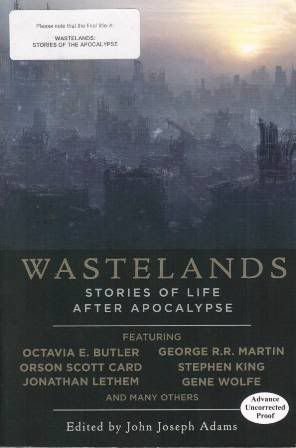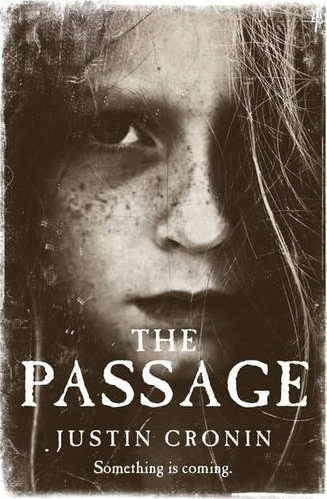Late in primary school I read a book called Second origin typescript by the Catalan author Manuel de Pedrolo. While it was written for children/teenagers, it's grim stuff. It tells the story of two children that 'accidentally survive an alien holocaust that eradicates all life on the planet. As Alba and Dídac bravely recover from the catastrophe, they not only insist on living in a post-apocalyptic world, inhabited by myriads of corpses and deranged, psychotic survivors, but they also take up the mission of preserving human culture and repopulating the Earth.' It's supposed to be quite famous in Spain according to Wikipedia, and rightly so. It's well-written and very moving.
It kinda dawned on me that there's probably truckloads of post-apocalyptic novels out there worth reading. For a short while I was very interested in zombie novels, but most of'm are of very poor quality. Comes with the subject, I guess. It's probably the same with PA novels without the undead. The only other PA book I can think of that I have read is McCarthy's The Road and Jose Saramago's Blindness.
First thing I'm pulling out of the library is Miller's A Canticle for Leibowitz. What does GAF suggest as further reading in the genre?
Edit: Whaddayaknow, it's going to be turned into a movie by Spanish director Bigas Luna next year.
It kinda dawned on me that there's probably truckloads of post-apocalyptic novels out there worth reading. For a short while I was very interested in zombie novels, but most of'm are of very poor quality. Comes with the subject, I guess. It's probably the same with PA novels without the undead. The only other PA book I can think of that I have read is McCarthy's The Road and Jose Saramago's Blindness.
First thing I'm pulling out of the library is Miller's A Canticle for Leibowitz. What does GAF suggest as further reading in the genre?
Edit: Whaddayaknow, it's going to be turned into a movie by Spanish director Bigas Luna next year.








